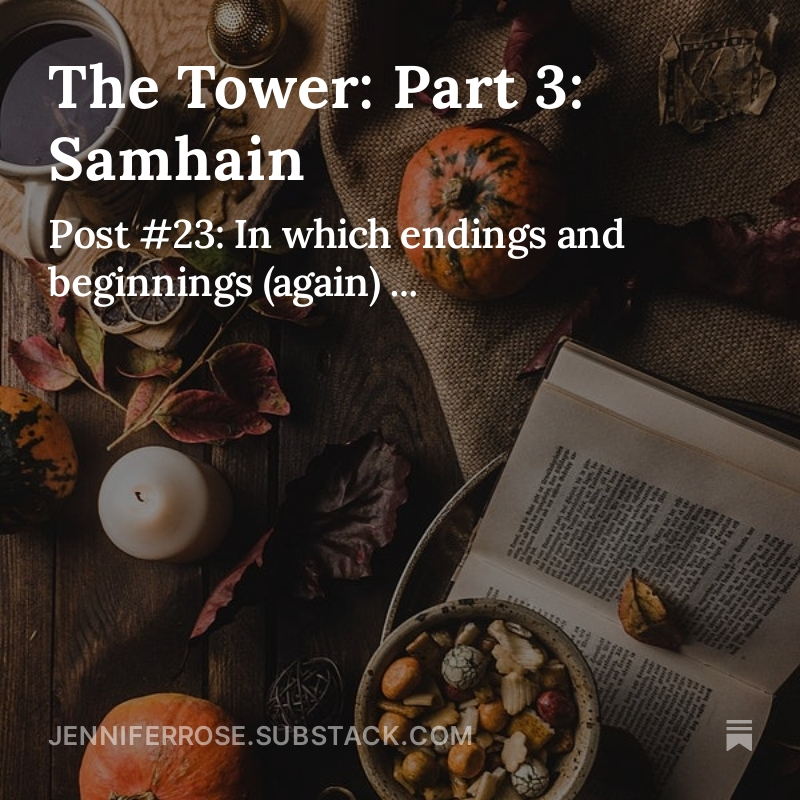by Jenny Rose | Jun 22, 2024 | Emotional Intelligence, Needs
In a recent conversation, someone asserted to me that ultimately everyone does what they want. I felt an immediate fury. That does not describe my life at all. I chewed on my outrage and resentment for a few weeks, simmering, until I decided to get over it and figure out why I was so hijacked.
I was immediately lost in the puckerbrush. Making choices about what we do and don’t do is intimately tied to needs and wants, and I have yet to be able to distinguish between the two once beyond the level of survival needs, or find any kind of clarity from someone else. Needs and wants are unpleasant territory I don’t want to explore. (See? There it is. I don’t want to. Yet I am, and I might need to.)

Photo by Bryan Minear on Unsplash
Then there’s the whole actions versus words aspect. People say they want things but don’t act accordingly. If we really want something, our behavior reflects it. If our behavior does not reflect our stated wants, we’re deceiving ourselves, or someone else, or both. I deeply distrust mixed messages. More unpleasant territory and old trauma.
Choice is in there, too. Choice is a big subject and a major theme in this blog. As I’ve mused on the statement ‘we all do what we want to do’ and made notes (you know I always make notes), I’ve wondered how we can compare a parent in some war-torn place attempting to keep their starving child alive another day with a wealthy person trying to decide if they want to fly their private plane to Paris for dinner or stay in and watch a movie in their in-home theater and have their chef prepare a seven-course meal. With wine, naturally.
One person has limited choices, all excruciating, to achieve continued survival for a few hours. The other has almost unlimited choices, all luxuries. How can I possibly compare the two? Can we say the parent trying to keep their child alive is doing what they want to do? Come on! Yet they do want to keep their child alive, right?
Perhaps it seems complicated and confusing because it’s complicated and confusing.
I wound up with a page full of notes, some sobering personal revelations, and a hairball.
On an internet search, I found articles pointing out the distinction between doing exactly what we want to do in any given moment (a toddler or a hedonist) and doing things we don’t want to do in service to an outcome we do want. That made sense to me.
If we focus on wanted outcomes rather than individual actions, we must have the ability to plan, look ahead, anticipate, and understand possible consequences of our actions. We also must attempt to predict the responses and reactions of the people around us to our actions, which means we have to understand something about emotional intelligence …

Photo by Manuel Sardo on Unsplash
… and now we’re back in the puckerbrush. I hate predictions. I don’t like leaps of faith. (I have a magnet on my fridge that says “Leap and the net will appear.” I don’t know why I keep it. It makes me mad every time I read it. Show me the warranty on that net. Show me the weight testing. Show me the damn net, in fact. Who will set it up when I leap? Are they paying attention or looking at their phone?) I trust my intuition, but I know I can be wrong. People are unpredictable. Life is unpredictable.
And yet we humans, including me, make choices all day long every day based on what we think will or might or could happen next. I’ve written about attachment to outcomes before. As I get older I’ve replaced a lot of my desired specific outcomes with simply wanting to know I did my best, regardless of outcomes. I may not like the outcome I get, but my integrity remains intact.
And then there are the people who don’t seem to understand actions and consequences in any kind of relationship. They choose what they choose in the moment and are hurt and/or outraged to discover the downstream consequences of that choice, especially in the context of many other choices. I observe this is a frequent divide along male/female lines. Women generally see everything as connected. Men generally see most things as discrete, in their own box. This is just one reason why I think “romantic” male/female relationships can be so devastating. We are often on different pages without knowing it.
If it’s true that we all do what we want in service to a desired outcome, what happens when my choices collide with yours? If you perceive me as blocking progress to your desired outcome you’re going to feel angry, and vice versa. We’re going to want each other to make different choices aligning with our personal desires. Most of the time, people won’t do that. We’re all attached to the outcomes we want.
A big piece of this for me is emotional labor, that hidden torrent winding through my life, sweeping away incalculable energy, time, and innocence. One of my priorities is healthy relationships. Close healthy relationships require time and attention; the ability to make choices for the good of the relationship rather than considering only our own wants and needs. This is an ongoing practice, not doing something we really don’t want to do once every six months and expecting applause. It means we have to face our own demons, learn to communicate clearly and honestly, negotiate, share power, and problem solve. It means boundaries and respect. It means reciprocity.
Having learned about reciprocity, I now prioritize my relationships to the degree the other does. I will not sign up to do all the emotional labor. I’m not interested in a close relationship like that. The price is too high. I’d rather put my energy into my relationship with myself. At least I appreciate my own efforts!
My conclusion about this ‘we all do what we want’ thing (gritted teeth – it still makes me mad), is it may be true if we consider our choices in the context of outcomes. I’ve made a lot of choices out of the clear knowledge that they were simply the right thing to do, too, choices that have been terrible for me, terrible in some of their consequences, yet ultimately still were the right thing for me to do. I had no outcome in mind. I don’t regret those kinds of choices, but they left permanent scars.

Photo by Cristian Newman on Unsplash
I want to blame others for all the time I’ve spent doing things I didn’t want to do, but it seems what we do and don’t do are entirely in our own hands, our own responsibility. Our lives are built on the choices we make, big and small, every hour of every day. If we don’t like our lives, we need to pay attention. Perhaps the useful question to ask ourselves if we hate what we’re doing at any given moment is, “Why am I doing this?” If we’re focused on a particular desired outcome, we may need to stop and think about whether our actions are effective in getting us there. Spending years of our lives desperately hoping and trying to reach an outcome and doing things we hate is not effective. I know this from personal experience. Our wants and needs change over time; what we once longed for may no longer be something we’re interested in. Sometimes we need to reality check ourselves. If we’ve been trying to get loved, for example, or please someone for a long period of time, it might be time to acknowledge our goal is not attainable or not worth attaining. Sometimes no matter how hard we work for an outcome it’s not achievable.
Then there’s the flip side: None of us do what we don’t want to do. That one is equally hard for me to swallow, but that’s a conversation for another day.
Questions:
- How much of each day do you spend doing things you don’t want to do? Why?
- What desired outcome(s) in your life requires you to do things you don’t want to do?
- Do you see your daily choices as isolated or part of a larger context attached to your wants and needs?
- Do you feel forced to labor emotionally? What would happen if you stopped?
- Who in your life reciprocates your level of emotional labor?
Leave a comment below!
To read my fiction, serially published free every week, go here: 
by Jenny Rose | Aug 27, 2022 | Connection & Community, Emotional Intelligence
A little over three years ago I wrote a post titled “Questions Before Engagement.”
Since then, the world has changed, and so have I.
I’m not on social media, but my biggest writing cheerleader is, and he tells me people are talking about how to recognize red flags. He suggested I post again about problematic behavior patterns.
A red flag is a warning sign indicating we need to pay attention. It doesn’t necessarily mean all is lost, or we’ve made a terrible mistake, or it’s time to run. It might be whoever we’re dealing with is simply having a bad day. Nobody’s perfect.

Image by Gerd Altmann from Pixabay
A persistent pattern of red flags is significant. Ignoring problematic behavior sets us up to get hurt.
The problem with managing red flags is we may be flying several ourselves, and until we figure out our own behavior we’re going to struggle to deal effectively with others.
We all have an excellent built-in system alerting us to possible danger. We call it intuition, going with our gut, or having a hunch or a feeling. We may not know why we feel uneasy, but we subconsciously pick up on threatening or “off” behavior from others. The difficulty is we’re frequently actively taught to disregard our gut feelings, especially as women. We’re being dramatic, or hysterical, or a bitch. We’re drawing attention to ourselves, or making a scene. What we saw, heard or felt wasn’t real. It didn’t happen, or if it did happen, we brought it on ourselves.
We live in a culture that’s increasingly invalidating. Having a bad feeling about someone is framed as being hateful, engaging in profiling, or being exclusive rather than inclusive. Social pressure makes it hard to speak up when we feel uncomfortable. Many of the most influential among us believe their money and power place them above the law, and this appears to be true in some cases. In the absence of justice, we become apathetic. What’s the point of responding to our intuition and trying to keep our connections clean and healthy when we can’t get any support in doing so?
If we grow up being told we can’t trust our own feelings and perceptions, we’re dangerously handicapped; we don’t respond to our intuition because we don’t trust it. We talk ourselves out of self-defense. We recognize red flags on some level, but we don’t trust ourselves enough to respond appropriately. Indeed, some of us have been severely punished for responding appropriately, so we’ve learned to normalize and accept inappropriate behavior.
So before we concern ourselves with others’ behavior, we need to do some self-assessment:
- Do we trust ourselves?
- Do we respond to our intuition?
- Do we choose to defend ourselves?
- Do we have healthy personal boundaries?
- Do we keep our word to ourselves?
- Do we know how to say both yes and no?
- Do we know what our needs are?
- Are we willing to look at our situation and relationships clearly and honestly, no matter how unwelcome the truth might be?

Photo by freestocks.org on Unsplash
Once we’ve become familiar with our own motivation and behavior patterns, we can turn our attention outward and focus on the behavior of those we interact with.
Red flags frequently seem too bad to be true. In intimate relationships with partners and family, the anguish of acknowledging toxic or dangerous behavior and setting limits around it cannot be overstated. Those we are closest to trigger our deepest and most volatile passions. This is why it’s so important to be honest with ourselves.
The widest lens through which to examine any given relationship is that of power-over or power-with. I say ‘lens’ because we must look and see, not listen for what we want to hear. Talk is cheap. People lie. Observation over time tells us more than words ever could. In the case of a stranger offering unwanted help with groceries, we don’t have an opportunity to observe over time, but we can say a clear “no” and immediately notice if our no is respected or ignored. We may have no more than a minute or two to decide to take evasive or defensive action.
If we are not in an emergency situation, or dealing with a family member or person we’ve known for a long time, it might be easier to discern if they’re generally working for power-with or power-over. However, many folks are quite adept at using the right words and hiding their true agenda. Their actions over time will invariably clarify the truth.
Power-over versus power-with is a simple way to examine behavior. No labels and jargon involved. No politics. No concern with age, race, ethnicity, biological sex, or gender expression. Each position of power is identifiable by a cluster of behaviors along a continuum. We decide how far we are willing to slide in one direction or another.
Power-Over
- Silencing, deplatforming, threatening, personal attacks, forced teaming, bullying, controlling
- Win and be right at all costs
- Gaslighting, projection, DARVO tactics (Deny, Attack, Reverse Victim and Offender)
- Fostering confusion, distrust, disinformation, and violence
- Dishonesty
- Poor communication and refusing to answer questions
- Emotional unavailability
- High-conflict behavior
- Blaming and shaming of others
- Refusal to respect boundaries
- Inconsistent
- Refusal to discuss, debate, learn new information, take no for an answer
- Lack of reciprocity
- Lack of interest in the needs and experiences of others
Power-With
- Encouraging questions, feedback, open discussion, new information, ongoing learning, critical thinking
- Prioritizing connection, collaboration, and cooperation over winning and being right; tolerance
- Clear, consistent, honest communication
- Fostering clarity, trust, information (facts), healthy boundaries, reciprocity, authenticity, and peaceful problem solving
- Emotionally available and intelligent
- Taking responsibility for choices and consequences
- Words and actions are consistent over time
- Respect and empathy for others
We don’t need to be in the dark about red flags. Here are some highly recommended resources:
- The Gift of Fear by Gavin de Becker
- Bill Eddy’s website and books about high-conflict personalities
- Controlling People by Patricia Evans

Image by Bob Dmyt from Pixabay
by Jenny Rose | Mar 5, 2022 | Connection & Community, Emotional Intelligence
Courtney Carver from Be More With Less dropped this little spring blossom in my Inbox recently. I’m not on Instagram but she passed this on from @sierranwells from @theshineapp.
Paraphrasing, giving our all leaves us empty. It’s unregulated and indicates questionable boundaries. A better choice is to give our best.
Don’t give your all. Give your best.
What an amazing distinction! When I say that to myself, I feel as though a mountain has been lifted from my shoulders.

Photo by Toa Heftiba on Unsplash
I don’t have to give everything and everyone my all. I can choose instead to give certain people, situations, and efforts my best. My best financial donation. My best support. My best effort. My best investment. My best love.
My all is reserved for me and my writing.
The filter between my all and my best immediately clarifies life and choices. It frees me to recognize when I’ve done enough. I’ve given my best. I can stop now. I don’t have to give and give and give until I have nothing left, not even enough to crawl away. I have the power. I make the choices. I decide where the boundaries are. I make an offering of my best, and if it’s not wanted or useful, I move on.
After all, if my best hasn’t been good enough, likely my all won’t be, either. I know that intellectually, but I’ve lived my whole life with the firm conviction that my best is inadequate and withholding. What’s required of me is to give my all, every last penny, every last bit of my time, energy, patience, and love. Everything. No boundaries. No reserves. No personal needs. Boundaries, reserves, and needs are selfish.
Wait, says a little voice inside me. Doesn’t unconditional love mean giving it all continuously, no matter what?
Does it? Is that what unconditional love means?
Unconditional love means love without strings attached.
I don’t know if human love is limitless. I don’t know if mine is. I’ve loved several people with everything in me before, but today I don’t feel as though any of those loved ones found my love useful or even noticed it for what it was. Perhaps it was lost in translation.
Perhaps they never wanted it or needed it in the first place.
I still love some of those people, because they are woven into my flesh and bone, but we are not actively connected and for the most part my love is mute and suffering. I have not found an acceptable way to give it, which is to say I have not found a way to feel it’s recognized, valuable, received or even welcome. It’s unconditional, but it’s unwanted.
Yet I do know one person who longs for my best and my all – all my unconditional love, all my compassion and empathy, all my strength and wisdom, all my creativity and courage.

Photo by freestocks.org on Unsplash
Me.
As I approach my 60s, I spend less and less time thinking about how to give my all and waiting for scraps and crumbs to come back to me. Now I’m focused on how to connect with and unconditionally love myself. Because I deserve it. And it’s my turn. And I want me. I need me.
The people (and cats) in my life get my best. Sometimes that seems regrettably inadequate, but I’m intentional about giving my best to those I interact with, work with, and live with. I give my best to what I do in life, from cleaning the bathroom to teaching a child to swim. My best love, care, and effort are no mean contributions to my loved ones and my community.
But I don’t owe my all to anyone. Not at this point in my life. I’ve never yet given my all without subsequent emotional bankruptcy it took me years to recover from. I’ve never yet felt my all was reciprocated. Perhaps that’s as it should be.
I thought I had to give my all. I thought that’s what love was. I thought one proves love, commitment, loyalty, what have you, with an investment of one’s all. I thought that investment was guaranteed to provide rich returns.
So far, I’ve failed to reap rewards from that strategy. I’m rethinking my investment plan. Might it be that giving my all to me increases the quality of my best to others? Could it be that giving my best to others will prove a better investment than giving my all? Is this a case of working smarter, not harder?
Maybe our all is only useful when we give it to ourselves. Maybe it doesn’t work elsewhere because it’s not supposed to. Maybe our best is better for the people around us.
In any case, I feel lighter, freer, and healthier, both in myself and in my relationships, when I endeavor to do my best within healthy boundaries and reserve my all for myself and my writing.

by Jenny Rose | Jan 15, 2022 | Connection & Community, Emotional Intelligence
Convenience: The state of being able to proceed with something with little effort or difficulty (online Oxford Dictionary).
It’s a frigid winter morning here in central Maine with a wind chill taking us into double-digit negative temperatures and a big winter storm approaching. I’m wrapped in a blanket, sitting in my attic aerie in the thin winter sunshine, listening to the wind and thinking about convenience.

Photo by Tom Barrett on Unsplash
The weather is inconvenient. I was hoping to load up the car for another trip to storage, but the wind chill is dangerous. Frostbite can occur in 10 minutes at these temperatures. The wind and cold have polished the ice and snow in our driveway to a slippery gloss, unforgiving as concrete. Nothing about the sound of the wind or the house creaking in the cold makes me want to leave my cozy blanket and chair and go out.
I think I’ll have another cup of tea instead.
I’ve never lived in a really old house before I came to Maine. The farmhouse we’re in now is 200 years old, and the house we’re in the process of trying to buy is more than 100 years old. I’ve learned, since I came here, to expect these old places to be less convenient in terms of closet space, ceiling height, finished basements, upstairs heat, and bathrooms than more modern homes.
Without considering it, I’ve always assigned a negative feeling to inconvenience. I read a few sentences from Seth Godin this week that made me think hard about the meaning and implications of convenience.
Looking at the definition above, I immediately notice how subjective it is. What may be entirely convenient for me can be ridiculously inconvenient for someone else, and vice versa. This is a challenge in my primary relationship. My partner cares a lot about convenience – his own. However, our ideas about what’s functional and workable are frequently quite different.
So here’s my first set of questions: where is the line between convenience and laziness? Is there a line? Should there be a line?
Godin opines that people will trade privacy and money for convenience, and I know from my own experience we sometimes behave as if we value convenience over relationships.
That seems wrong to me. Do we really care more about our own convenience – where things are kept, how we manage recycling and trash, how to load a dishwasher, how to position a roll of paper towels or toilet paper, how to iron a shirt – than our relationships?
Have I ever done that?
No, of course not!
Probably.
I have certainly received that message from others: I care more about having it my way than I do about you.
Ouch.
At the other end of the spectrum, I will say without hesitation there are certain “inconveniences” nobody should tolerate. Like being systematically abused or bullied, or ignoring a chronic issue that’s dangerous or a health concern. A car with a broken hatch or door that flies open while driving, for example, is more than an inconvenience.
Do we tolerate those kinds of things because it’s more inconvenient to deal with them than it is to live with them?
Speaking for myself, the answer is maybe. I will, and have, and do, tolerate constant small inconveniences because I value relationship more than my own comfort (not necessarily a healthy thing, especially when unreciprocated), and I find conflict and tension so unbearably inconvenient. I’d rather deal with my slow accumulation of resentment than stand up for what I find convenient in the context of a relationship and risk friction.
As I said, convenience is so subjective it’s hard to get on the same page in terms of discussing it. Convenience works in the shadows. We don’t talk or think about it directly. How many unconscious decisions a day do we make in an effort to make our busy, noisy lives more convenient, never counting the cost to ourselves or those around us?

Photo by Nabeel Syed on Unsplash
The cost of convenience. Not only monetary cost, but time, energy, social, environmental costs. Cars are indispensable for most of us. If we don’t have our own, we have access to some kind of mass transit. But we pay for our cars, and the planet suffers for them. Plastic is unbelievably convenient. It’s also choking the planet to death.
Convenience is a moving target. Having to walk through a big house to the one bathroom is not as convenient as an en suite bathroom, but it sure beats having to go out to the outhouse! When do we have enough convenience? When are we satisified with our privileges?
At what point have we taken convenience too far? How do we persuade ourselves and others to accept something more inconvenient but healthier and more sustainable for everyone, including the planet?
Undeniably, our search for more convenience has motivated countless amazing technological and design breakthroughs. Our desire for convenience can fuel our adaptability and resilience, our creativity, and underpins movements like minimalism.
But are we entitled to demand ever-increasing convenience from the world and those around us? Do we have a right to encounter no difficulty, have to make no effort?
Absolutely not. Because our convenience may be creating inconvenience for someone else, which they may or may not express. For me, this boils down to what I’ve learned about needs: My needs are as important but not more important than anyone else’s.
My convenience is as important but not more important than anyone else’s. None of us can escape others, not in this crowded world. And that means we’re all going to encounter difficulty and we’re all going to have make an effort, whether it’s convenient or not. Inevitably, some of us will make more effort than others, and it’s up to those hard-working people (emotional labor, anyone?) to refrain from enabling others in a quest for total convenience.
Perhaps inconvenience, like discomfort, is not negative at all. Maybe it shapes us in powerful, positive ways, helping us stay creative and flexible, reminding us to stay present with our true priorities and whether our actions reflect them.
Sometimes we’re going to have to change our plans to accommodate the weather.
Sometimes we’re going to have to walk through a couple of rooms or down the stairs to use our bathroom.
Sometimes we’re going to have to deal with the inconvenience of other people or pets.
We can choose convenience over all the rest. We can. But, as Godin reminds me, some things, and some people, are worth a little inconvenience. Or even a lot.

Photo by Aaron Burden on Unsplash
by Jenny Rose | Nov 20, 2021 | Connection & Community, Emotional Intelligence
I was cleaning cat hair off our furniture a couple of days ago and thinking about the Golden Rule. I muttered about it, too. To the cats, who had no opinion but thought the whole removing-cat-hair-with-a-dish-glove business highly entertaining and a good game. They wanted the cat hair back. I wanted to get rid of it.

Ozzy 2021
Sometimes I feel I’ve spent my life cleaning.
Don’t get me wrong. Cleaning can be a sacred activity, a Baba Yaga kind of activity. Few things are as satisfying to me as making order out of chaos; sorting the unwanted and unnecessary from the useful and beautiful is something I always enjoy.
On the other hand, cleaning is emotional labor. Physical labor, too.
When I say “I love you,” part of that is a commitment to provide a clean, comfortable, healthy space. Part of my own self-respect and self-love is providing myself a clean, comfortable, healthy space.
It’s not a question of money. Paint is peeling off many surfaces in this house. That doesn’t mean those surfaces need to be dirty. Yes, the floor is pitted, stained and scarred. That doesn’t mean I don’t bother to scrub off the grime. Yes, the front door gaps and sags. The metal screen door is getting rusty. That doesn’t mean they have to be filthy.
So, cleaning. For all of us, myself, my partner, and the cats.
I know some people will say the cats don’t care. My partner has said he doesn’t notice.
But I care. I notice. And I don’t know the cats don’t care. Why should they live in unnecessary squalor?
Anyway. The Golden Rule. Do unto others, etc.
I think the Golden Rule is a good way to live. I live by it. The problem is the rule itself implies others will do unto you as you do unto them.
And that’s simply not true.

Photo by Evan Kirby on Unsplash
It’s like tolerance, or respect, or reciprocity. Treating others by those standards does not mean we’ll receive the same treatment.
I’m angry about that. Living by the Golden Rule is expensive in time, energy, and patience. I choose to do it because it’s part of my integrity as a human being, but it’s not easy, and it’s not an investment that always pays off. Which is sad. And disconnecting.
I’ve asked it before and I ask it again. When have we given enough?
Then I received a post in my Inbox from Joshua Fields Millburn titled ‘The Boundaries of Discontent’ about this very subject. Tolerance, he says “can be a magnet for neglect.”
Amen.
The Golden Rule is an effective guide for choice. I feel good about myself and the way I show up in the world when I employ it. But it’s only the first step.
The second step is observing whether it’s reciprocated in any given situation and continuing to make healthy, self-supportive choices based on that observation.
It’s wonderful to give positive things to the world and others, but we need to notice if we’re not receiving in kind. Giving out of an emotional deficit is not sustainable. We deserve more than that. We can find people who live the Golden Rule, people like us.
Millburn says we encourage what we tolerate, and he’s right. Tolerance is too heavy to carry alone in a relationship, and unbalanced tolerance is simply clutter. When we stop tolerating the absence of reciprocity, or more than a few days of cat hair on the furniture, we can move into a simpler, clearer, cleaner life.
Healthy boundaries are not intolerance.
I don’t want to be the friend who never reciprocates. In fact, I’ve voluntarily left more than one relationship because it was clear that who I am was making others unhappy or uncomfortable and I was unable to find a way forward into something healthier with them. I don’t want toxic people in my life, and I won’t be a toxic person for anyone else, either. Do unto others has sometimes meant letting go and moving on for my sake and theirs.
Tools for healthy relationship and connection like the Golden Rule work best when both parties bear their weight and use them. If that’s not happening, the tool becomes ineffective, even destructive, and the relationship falters.
Do unto others as you would have them do unto you. To a point. But don’t get too carried away. And don’t build expectations of reciprocity around it. Follow it because you believe it’s the right thing to do and let go of the rest.

Photo by Roderico Y. Díaz on Unsplash














